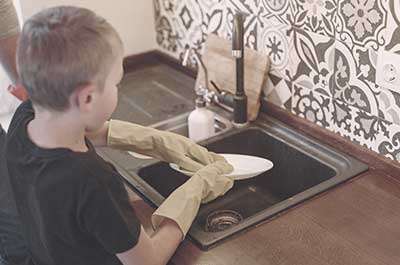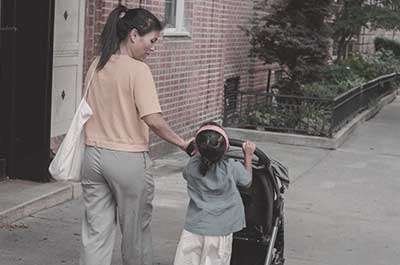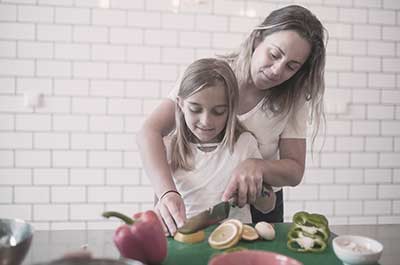As parents, one of our primary goals is to teach our kids responsibility. But what’s the best way to do that? There are a lot of different approaches, and what works for one kid might not work for another. Here are ten of the best ways to teach kids responsibility. Some of them may work for your family, and some may not – but it’s worth trying out a few to see what helps your kids learn this vital life skill.
Encourage independence.

One of the best ways to help kids learn responsibility is by encouraging independence.
This is a great way to teach kids responsibility because it can significantly impact their lives. They need to learn how to do things independently so that they don’t grow up expecting others to do everything for them. Teach your child how to make his bed, clear the table after dinner, and pick up his toys and clothes.
Also, teach your child how to ride a bike, tie his shoes, and look both ways before crossing the street. As they get older, make sure they learn about safe sex and how to handle peer pressure. These are lessons that they will use for a lifetime.
Making lunch is a great way to practice responsibility, and it’s also an excellent way to help kids learn how to prepare healthy meals for themselves when they’re older. All you’ll need is sandwich supplies and a few other items that your child might enjoy, like string cheese or yogurt.
Have a chore schedule.
For younger kids, one of the best ways to teach responsibility is through a chore schedule – and it doesn’t have to be complicated.
If your child is old enough to understand simple directions, you can simply write down a list of daily chores that they need to complete. Let her pick some fun daily tasks, like setting the table or dusting the coffee table. Chores should also incorporate things that your child enjoys doing, so take her interests into account when coming up with a list of responsibilities.
Be sure to reward her often for completing her chores on time and ask her to do extra things around the house just because she’s being helpful. Just make sure that the rewards are age-appropriate.
It’s also a good idea to let your child pick out her rewards, whether it’s extra screen time or ten minutes of the TV after they complete all her tasks. This way, she’ll be more likely to do them.
Create a sticker chart.
Another great way to teach kids responsibility is with a sticker chart. These are wonderful for helping your child learn the concept of cause and effect and how to evaluate various choices and determine their consequences.
A sticker chart lets you pick several daily tasks that your child can complete. For example, you could have him pick up his toys, put his clothes away, feed the cat, brush his teeth at night before bed, and eat all of his vegetables without complaining about dinner.
Once they complete each task, let him apply a sticker to the chart. If they don’t complete a task on time, take a sticker away. Be sure only to take a few stickers away each day – if you remove too many, your child will feel discouraged and not want to try anymore.
Give them extra responsibility.

Kids need to understand how their behavior can impact others around them, so allow them to take on more serious responsibilities. This will teach them how their choices can affect other people.
For example, if your child is old enough to babysit, give her the opportunity. Let them make meals for younger siblings or pick up after his brothers or sisters when they make a mess in the living room. If you’re on vacation, ask your child if she’s comfortable watching her younger siblings.
If your child is responsible enough, you can even give him more freedom, like picking out his own clothes for school or letting him go to the movies with friends on Saturday nights.
Making them responsible for their choices will teach kids about responsibility in a way they’ll never forget. You may not have done things perfectly when you were a kid, but if you learn from your mistakes and make sure the same doesn’t happen to your child, then you’ll do just fine.
Gradually reduce your presence.
You can also start to take a step back and let them handle things on their own. For example, if you usually drive him to school, leave earlier so he’ll have to catch the bus instead. If you normally pick up his clothes from the laundry room, ask him to pick out his outfits for a few days. If your child is old enough, they may be more independent as an adolescent than as a younger kid.
Don’t forget to praise them along the way – being responsible isn’t easy, and it can be pretty difficult adjusting to a new routine, but after a bit of time, they’ll have gotten used to their duties and will appreciate your trust in them.
Help them make their own decisions.
If your child is old enough, they may be ready to start making decisions independently. This can be great for teaching kids responsibility because it will allow them to learn how to weigh options and think about potential consequences.
This also means that you’ll need to help them do some research before making big decisions, like what college to attend or the types of questions to ask while job hunting. Let him read about different possibilities and discuss them with you before moving forward on anything.
Make sure they understand the consequences of their actions. If your child is old enough to understand when you tell them something will happen, they are old enough to do it themselves.
For example, if you tell your child the consequences of not eating their vegetables are they won’t grow up big and strong, you can let them decide for themselves what to do.
If they realize that their decision has consequences, they may be more likely to grow up knowing how to be responsible.
Don’t expect too much from them too soon.

This can be difficult, but it’s important not to overwhelm your child regarding responsibility. Have reasonable expectations and teach kids step-by-step how to handle things on their own.
For example, you can let your child buy his own snacks for the family’s movie night, but don’t ask him to do it on his own every time.
Don’t expect more than what you’re prepared to give back in return. Let them do things for themselves, but be there to help them along the way.
Allow yourself some time to get used to this new way of life. You may have grown up doing everything yourself, but your child needs to learn how to be responsible.
Start a garden.
Kids love getting their hands dirty, so why not flip that into a lesson in responsibility? You can grow your own vegetables or start an herb garden. You can even help them grow their own orchids if you are interested in gardening. Kids will enjoy watching things grow, as well as the taste of a fresh tomato or cucumber from their backyard.
Once the plant starts to grow, you’ll have to do some regular maintenance so children can learn how to take care of things. They will have to water the plant regularly, remove weeds, and check for bugs. You can also teach them how to harvest and prepare the food or herbs they’ve grown.
This will allow you to spend more time outside with your child while giving them a chance to show off their hard work.
Make them earn their own money.
Kids love money, whether it’s their allowance or an allowance you give them for helping with chores. However, this can be a great responsibility tool. Teach them the value of a dollar and how to manage their spending.
To start, you can set up piggy banks or jars so kids can start saving their change. Then, you can upgrade to letting them see how much they’ve earned in dollar bills when they fill up their jar. Once they’re old enough, you can switch to giving out an allowance.
If your child is responsible enough, give him an allowance for doing his chores or helping around the house. Then ask him to divide that allowance into specific categories, like saving, spending, and sharing.
Teach them to cook.

To be able to feed themselves as adults, children need to learn how to cook at a young age. Teach your kids how to cook through fun activities when they are young, like baking cookies or assembling a snack tray.
Once they can make a few easy snacks, you can teach them recipes for simple things, like sandwiches or soup. You can also let them help you cook dinner. Then, as they get older, you can let them make dinners on their own.
This will allow your children to learn how to make healthy food choices, as well. If they are old enough to pick out the recipe, teach your kids about reading labels so they can understand what they are putting in their bodies.
Conclusion.
Teaching kids responsibility is one of the greatest gifts you can give them in their childhood. They will learn how to be helpful, respectful, and self-sufficient if they are taught what it means to be responsible. If you want your child to grow up with a good character, start teaching him about responsibilities right now!
Please visit our blog for more educational articles, and if you enjoy our material, please share it with your friends and family.
Thank you!

Meet Brenda Tillman: your go-to expert in Cognitive Behavioral Therapy! Not only is she a seasoned therapist, but she’s also a passionate mom blogger who never misses a beat. Dive deep into her insightful blogs, backed by her extensive coursework in Parenting Skills, Learning, and Education. Brenda’s heartwarming family – a son, two daughters, and their adorable pets – often take center stage in her writings. From parenting hacks and relationship tips to health & fitness nuggets, Brenda has been enlightening her readers for over half a decade. Stick around, and you’re bound to discover gems from a mom who wears many hats with grace!
Reviewed By: Joanna Perez and Marcella Raskin
Edited By: Lenny Terra
Fact Checked By: Gabrielle J. Smith
Photos Taken or Curated By: Matthew Mansour